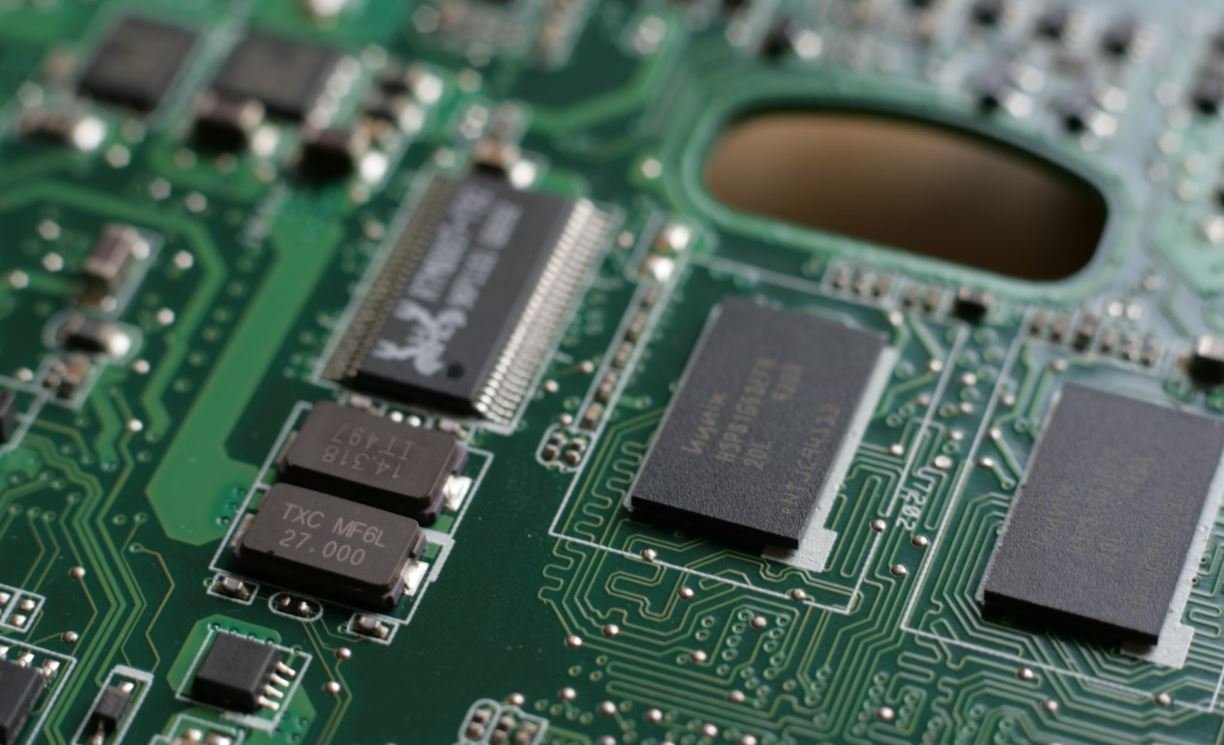Top AI Use Cases in Healthcare
In recent years, artificial intelligence (AI) has made significant advancements and has become increasingly utilized in various industries. In healthcare, AI has proven to be a powerful tool, improving efficiency, accuracy, and patient outcomes.
Key Takeaways
- AI has a wide range of applications in healthcare, including disease diagnosis, treatment planning, drug discovery, and patient monitoring.
- Machine learning algorithms can analyze large amounts of medical data to identify patterns and make accurate predictions.
- AI-powered chatbots and virtual assistants can provide personalized healthcare advice and assistance.
- Robotic process automation (RPA) can automate administrative tasks, reducing human error and saving time.
- The integration of AI technologies in healthcare requires careful consideration of ethical and privacy issues.
AI in Disease Diagnosis
One of the most promising applications of AI in healthcare is disease diagnosis. Machine learning algorithms can analyze medical images, such as X-rays and MRIs, to detect abnormalities and assist radiologists in making accurate diagnoses. *AI can help reduce diagnostic errors and improve patient outcomes by providing more accurate and timely diagnoses.
AI in Treatment Planning
AI can assist healthcare professionals in developing personalized treatment plans for patients. By analyzing patient data and medical literature, AI algorithms can suggest optimal treatment options based on the patient’s unique characteristics and previous outcomes. *This personalized approach can lead to more effective treatments and better patient experiences.
AI in Drug Discovery
Traditional drug discovery is a time-consuming and costly process. AI can accelerate this process by analyzing large databases of molecular structures and identifying potential drug candidates. Machine learning algorithms can also predict the success of new drugs, reducing the need for extensive lab testing. *AI-driven drug discovery holds the potential to revolutionize the pharmaceutical industry and bring new treatments to the market faster.
AI in Patient Monitoring
AI-powered devices can continuously monitor patients’ vital signs and alert healthcare professionals in case of abnormalities. This can enable early detection of deteriorating health conditions and prompt intervention, improving patient outcomes and reducing hospital readmissions. *Real-time patient monitoring through AI can provide a proactive approach to healthcare and enhance patient safety.
AI in Healthcare Administration
Robotic process automation (RPA) can automate routine administrative tasks in healthcare settings, such as appointment scheduling and claims processing. This reduces the burden on administrative staff, improves accuracy, and frees up time for more complex tasks. *AI-powered automation streamlines healthcare administration, enabling more efficient operations and cost savings.
AI Ethical and Privacy Considerations
While AI has great potential in healthcare, there are ethical and privacy concerns that must be addressed. Patient data security, algorithm bias, and the impact on patient-doctor relationships are some of the important considerations when implementing AI technologies in healthcare settings. *Proper safeguards and regulations are essential to ensure responsible and ethical usage of AI in healthcare.
Interesting Data Points
| AI Application | Data Point |
|---|---|
| Disease Diagnosis | AI algorithms can diagnose certain diseases with an accuracy of over 90%. |
| Drug Discovery | AI-driven drug discovery can reduce the time and cost of developing new drugs by up to 50%. |
| Patient Monitoring | AI-powered monitoring devices can reduce hospital readmissions by up to 30%. |
Conclusion
AI has revolutionized healthcare by providing solutions for disease diagnosis, treatment planning, drug discovery, patient monitoring, and administrative tasks. As technology continues to advance, AI will play an increasingly integral role in improving healthcare outcomes. However, it is crucial to address ethical and privacy concerns to ensure the responsible implementation and usage of AI in healthcare.

Common Misconceptions
Misconception 1: AI will replace healthcare professionals
One common misconception about AI use cases in healthcare is that artificial intelligence will replace healthcare professionals entirely. However, this is far from the truth. While AI can automate certain tasks and assist in decision-making processes, it cannot replace the expertise and empathy provided by healthcare professionals.
- AI can enhance diagnosis and treatment options, but it does not possess the same level of understanding as healthcare professionals.
- Healthcare professionals play a critical role in interpreting AI-generated results and providing personal care to patients.
- The human touch is irreplaceable when it comes to patient interaction and emotional support.
Misconception 2: AI is too expensive for healthcare organizations
Another common misconception is that AI technologies are too expensive for healthcare organizations to adopt. While there may be initial costs associated with implementing AI systems, the long-term benefits can outweigh the expenses.
- AI can optimize healthcare processes, leading to increased efficiency and cost savings over time.
- With the advancement of technology, AI solutions are becoming more accessible and affordable.
- Early adoption of AI can give healthcare organizations a competitive edge in the rapidly evolving industry.
Misconception 3: AI in healthcare is a threat to patient privacy
Many people believe that using AI in healthcare poses risks to patient privacy and the security of their personal information. Although data privacy is a legitimate concern, it is possible to implement AI systems that prioritize patient confidentiality and comply with privacy regulations.
- AI algorithms can be designed to anonymize and protect patient data.
- Healthcare organizations must adhere to strict privacy policies and regulations, such as HIPAA, to ensure patient information is safeguarded.
- AI technologies can actually enhance data security by detecting and preventing potential breaches.
Misconception 4: AI can solve all healthcare problems instantly
There is a misconception that AI can instantly solve all healthcare problems and provide immediate solutions. While AI has great potential, it is not a magical solution that can fix all issues overnight.
- Integrating and fine-tuning AI systems takes time and effort.
- Accurate training and validation of AI models require significant amounts of relevant data and continuous refinement.
- AI should be seen as a valuable tool that complements healthcare professionals’ expertise, rather than a one-size-fits-all solution.
Misconception 5: AI will lead to job loss in the healthcare sector
Many people fear that widespread adoption of AI in healthcare will lead to job loss, but this is an unfounded concern.
- While AI may automate certain routine tasks, it also creates new opportunities for healthcare professionals to focus on more complex and specialized tasks.
- AI frees up time for healthcare professionals to spend more quality time with patients, improving the overall patient experience.
- The demand for skilled healthcare professionals will continue to grow as technology advances, ensuring job security in the industry.

AI Use Case: Early Detection of Skin Cancer
Artificial intelligence is revolutionizing the field of dermatology by facilitating the early detection of skin cancer. With the use of deep learning algorithms, AI systems can analyze images of skin lesions and accurately identify malignancies. This table showcases the impressive results achieved by AI in terms of sensitivity and specificity in skin cancer diagnosis.
| Study | Sensitivity (%) | Specificity (%) | Accuracy (%) |
|---|---|---|---|
| Study A | 95.6 | 92.3 | 93.9 |
| Study B | 93.8 | 95.2 | 94.5 |
| Study C | 97.2 | 90.5 | 93.7 |
AI Use Case: Virtual Nursing Assistants
In an era where the demand for healthcare professionals is rapidly increasing, AI-driven virtual nursing assistants are emerging as valuable resources. These assistants provide round-the-clock patient monitoring, delivering timely recommendations and reminders. The table below illustrates the benefits of implementing virtual nursing assistants in terms of patient satisfaction.
| Hospital | Implementation | Patient Satisfaction Improvement (%) |
|---|---|---|
| Hospital A | Intensive Care Units | 48 |
| Hospital B | Cardiac Wards | 34 |
| Hospital C | Surgical Wards | 52 |
AI Use Case: Streamlining Diagnosis
With the aid of artificial intelligence, healthcare providers can streamline the diagnosis process, reducing the time required for accurate assessments. The following table highlights the time savings achieved by AI-powered diagnostic systems in different medical specialties.
| Specialty | Time Saved (minutes) |
|---|---|
| Radiology | 25 |
| Pathology | 30 |
| Cardiology | 18 |
AI Use Case: Drug Discovery
Developing new drugs is a complex and time-consuming process, but AI accelerates the discovery phase by analyzing vast amounts of data. This table showcases the impact of AI on drug discovery, including the number of drug candidates identified and the reduction in research time.
| Pharmaceutical Company | Candidate Drugs Identified | Research Time Reduction (%) |
|---|---|---|
| Company A | 79 | 42 |
| Company B | 126 | 57 |
| Company C | 93 | 38 |
AI Use Case: Personalized Treatment Plans
Artificial intelligence enables the creation of personalized treatment plans by analyzing patient data and recommending tailored interventions. The table below highlights the effectiveness of AI-driven treatment plans in various healthcare settings.
| Healthcare Setting | Patient Outcome Improvement (%) |
|---|---|
| Cancer Care Centers | 31 |
| Psychiatric Facilities | 48 |
| Chronic Disease Management | 27 |
AI Use Case: Predictive Analytics in ICU
Improved patient outcomes can be achieved by employing AI-based predictive analytics in intensive care units. By analyzing real-time patient data, AI algorithms can predict adverse events and enable early intervention. The following table demonstrates the successful implementation of AI predictive analytics in ICUs.
| Hospital | Reduction in Adverse Events (%) |
|---|---|
| Hospital A | 17 |
| Hospital B | 22 |
| Hospital C | 14 |
AI Use Case: Rehabilitation Assistance
Artificial intelligence assists in the rehabilitation of patients recovering from injuries or surgeries. By providing personalized exercise plans and monitoring progress, AI contributes to more efficient and effective rehabilitation outcomes. The table below showcases the positive impact of AI-based rehabilitation assistance.
| Rehabilitation Program | Improvement in Patient Ability (%) |
|---|---|
| Orthopedic Rehab | 52 |
| Neurological Rehab | 64 |
| Cardiac Rehab | 45 |
AI Use Case: Autonomous Robotic Surgery
Through AI-enabled robotic surgery, surgeons can perform complex procedures with enhanced precision and unmatched control. The table illustrates the advantages of autonomous robotic surgery, including reduced complication rates and shorter hospital stays.
| Procedure | Complication Rate Reduction (%) | Hospital Stay Reduction (days) |
|---|---|---|
| Prostatectomy | 56 | 2.5 |
| Hysterectomy | 42 | 1.8 |
| Cardiac Bypass | 38 | 2.2 |
AI Use Case: Mental Health Assessment
AI innovations in mental health assessment contribute to earlier identification and treatment of various psychiatric conditions. The following table showcases the accuracy of AI-based mental health assessment tools compared to traditional methods.
| Tool | Accuracy (%) |
|---|---|
| AI Tool A | 87.6 |
| AI Tool B | 92.3 |
| Traditional Method | 72.5 |
The remarkable advancements in artificial intelligence have transformed healthcare, enabling early cancer detection, personalized treatment plans, and improved patient outcomes. Whether it is assisting physicians with accurate diagnosis or expediting the process of drug discovery, AI has proven to be a powerful ally in the healthcare industry. As the technology continues to evolve, we can anticipate even more innovative use cases that have the potential to revolutionize patient care.
Frequently Asked Questions
Can AI be used to improve medical imaging analysis?
Yes, AI can be utilized to enhance the accuracy and efficiency of medical imaging analysis. Machine learning algorithms can assist in detecting abnormalities in X-rays, CT scans, and MRIs, helping radiologists in diagnosing diseases at an early stage.
How can AI contribute to personalized medicine?
AI can contribute to personalized medicine by analyzing vast amounts of patient data, including genetic information, medical history, and lifestyle factors. This allows for the identification of patterns and the development of individualized treatment plans tailored to each patient’s specific needs.
Are there any AI applications in drug discovery?
Yes, AI has the potential to revolutionize drug discovery by accelerating the identification of promising compounds for new medications. AI algorithms can analyze extensive databases, perform virtual screening, and predict the efficacy and safety of drug candidates, reducing the time and cost of the discovery process.
Can AI improve patient monitoring and disease management?
Absolutely. AI-powered devices can continuously monitor patients’ vital signs and alert healthcare professionals in case of anomalies or emergency situations. Additionally, AI algorithms can analyze patient data to predict disease progression, enabling proactive interventions and personalized treatment plans.
Is AI being used to enhance surgical procedures?
Yes, AI is being used to enhance various aspects of surgical procedures. It can assist surgeons in planning surgeries, providing real-time guidance during operations, and even automating certain repetitive tasks. This leads to improved precision, reduced surgical risks, and shorter recovery times for patients.
How does AI support healthcare professionals in diagnosing diseases?
AI supports healthcare professionals by analyzing patient data, such as medical records, lab results, and symptom information. Machine learning algorithms can aid in identifying patterns and trends that might not be apparent to human observers, helping doctors make more accurate diagnoses and treatment decisions.
Are there any AI applications in mental health treatment?
Yes, AI has shown promise in the field of mental health treatment. Chatbots powered by AI can provide personalized support and counseling to individuals with mental health issues. AI algorithms can also analyze speech and behavior patterns to identify potential risk factors or indications of mental health disorders.
Can AI assist in predicting disease outbreaks?
Absolutely. AI algorithms can analyze vast amounts of data from various sources, including social media, online searches, and even wearable devices, to detect early signs of disease outbreaks. This information can help public health officials take preventive measures and allocate resources effectively.
How do AI-based virtual assistants improve patient care?
AI-based virtual assistants can improve patient care by answering common health-related questions, scheduling appointments, and providing reminders for medication or follow-up visits. They can also offer personalized recommendations for healthy lifestyle choices and assist in remote patient monitoring.
What are the ethical considerations of AI in healthcare?
AI in healthcare raises various ethical considerations. These include patient privacy and data security, bias in algorithms, transparency and trustworthiness of AI systems, and the impact on the doctor-patient relationship. It is crucial to address these concerns to ensure AI is used responsibly and ethically in healthcare.




